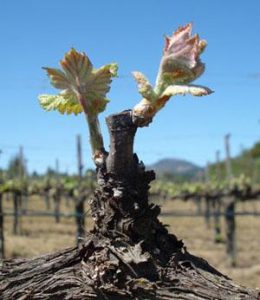 Before the lock down, Wednesday, in the middle of the week, our congregation used to make Eucharist in the church. Thinking about that, for today’s meditation, I chose the Gospel appointed for the Wednesday’s Eucharist: Jesus the vine and we the branches.
Before the lock down, Wednesday, in the middle of the week, our congregation used to make Eucharist in the church. Thinking about that, for today’s meditation, I chose the Gospel appointed for the Wednesday’s Eucharist: Jesus the vine and we the branches.
This imagery is a common place in the Old Testament too. If in the Old Testament the vine is Israel, in John, the vine is Jesus. It is important to highlight that in the bot parts of the Bible the vine is planted, and not a spontaneous product. Jesus is planted by his Father in the world, when he became flesh. With that moment we were grafted onto him, onto the vine. Creating this connection with him, we started to have the same spirit, his spirit. We started to bear fruit according this spirit. In this process are engaged three subjects: The Father, Jesus and we, as Christians. Father is the husbandman, the land-worker, the owner of the vineyard. Jesus is the vine and we are the branches grafted onto him. A good land-worker knows what shall to do for his vine to produce good fruit and more fruit. We could say that there is a “team” work. This “team” work requires a simple, a basic condition: to abide. In John’s Gospel, Jesus repeats several times that his Father abides in him and he in his Father. Now, he makes a step further: we are invited to abide in him. The consequences are those expected: we bear the fruit of the same spirit, the spirit of the Father and of Jesus.
 The key condition is to abide. The original verb from the Gospel, used by John, the imperative form, μεινατε (meinate) means remain, abide, remain in reference, remain as one, connected. This is the reason some translations in English use remain not abide. The meaning is the same: we can’t produce the fruit of the same spirit if we do not remain connected to Christ, and trough him, with God the Father.
The key condition is to abide. The original verb from the Gospel, used by John, the imperative form, μεινατε (meinate) means remain, abide, remain in reference, remain as one, connected. This is the reason some translations in English use remain not abide. The meaning is the same: we can’t produce the fruit of the same spirit if we do not remain connected to Christ, and trough him, with God the Father.
God is working always in keeping us able to bear fruit. It does not happen without transformation, even with painful transformation.Unfortunately, the modern society, the modern people does not like to speak about pain, about the need of transformation; does not like to say the truth when it is hurt. Our society found a very interesting expression to avoid the truth: political correctness. First, this modern rule was applied in politics, but, step by step it became the law which guide our life. It is applicable for the Christian congregations too.
The purging and the pruning are painful operation made for the vine’s branches in order to make them fruitful. Let’s name this operation transformation or purification. As the branches grafted onto the vine accept the nutrients from the vine, we have to accept Jesus’ spirit. We know that it does not happen without resistances every day, every hour. Every single change in our life creates a small or a big resistance. It is the same for our congregations. This period of lock-down drove us in the situation to rethink what we are and how we are as a congregation and as Christians. We feel the truth and we would like not to have to tell it because it hurts. We are invited to tell it and to act in accordance with this truth in order to remain able to bear fruit, more fruit.
(St. Mary the Virgin, Prittlewell, Southend on Sea, 12 May 2020)
